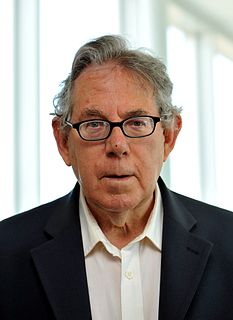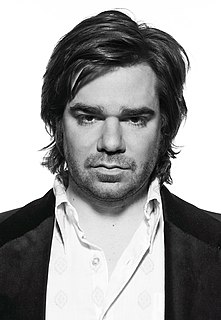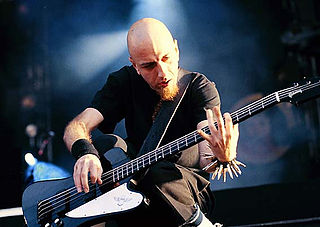A Quote by Paul J. Crutzen
Imagine our descendants in the year 2200 or 2500. They might liken us to aliens who have treated the Earth as if it were a mere stopover for refueling, or even worse, characterize us as barbarians who would ransack their own home.
Quote Topics
Related Quotes
I feel we are so blessed to live in a country where we enjoy so many rights that other countries cannot even begin to imagine. However, it terrifies me that we seem to have lost touch with our connection to the earth. I am concerned that we have risen to such heights of arrogance in our refusal to acknowledge that our earth is rapidly changing in ways that might affect us catastrophically but instead, we hold steadfast to our belief that nothing can happen to us as a people.
It is an odd fact of evolution that we are the only species on Earth capable of creating science and philosophy. There easily could have been another species with some scientific talent, say that of the average human ten-year-old, but not as much as adult humans have; or one that is better than us at physics but worse at biology; or one that is better than us at everything. If there were such creatures all around us, I think we would be more willing to concede that human scientific intelligence might be limited in certain respects.
We have inherited a fear of memories of slavery. It is as if to remember and acknowledge slavery would amount to our being consumed by it. As a matter of fact, in the popular black imagination, it is easier for us to construct ourselves as children of Africa, as the sons and daughters of kings and queens, and thereby ignore the Middle Passage and centuries of enforced servitude in the Americas. Although some of us might indeed be the descendants of African royalty, most of us are probably descendants of their subjects, the daughters and sons of African peasants or workers.
However dangerous might be the shock of a comet, it might be so slight, that it would only do damage at the part of the Earth where it actually struck; perhaps even we might cry quits if while one kingdom were devastated, the rest of the Earth were to enjoy the rarities which a body which came from so far might bring it. Perhaps we should be very surprised to find that the debris of these masses that we despised were formed of gold and diamonds; but who would be the most astonished, we, or the comet-dwellers, who would be cast on our Earth? What strange being each would find the other!
The storyteller is deep inside everyone of us. The story-maker is always with us. Let us suppose our world is attacked by war, by the horrors that we all of us easily imagine. Let us suppose floods wash through our cities, the seas rise . . . but the storyteller will be there, for it is our imaginations which shape us, keep us, create us - for good and for ill. It is our stories that will recreate us, when we are torn, hurt, even destroyed. It is the storyteller, the dream-maker, the myth-maker, that is our phoenix, that represents us at our best, and at our most creative.
About 2500 years ago Aeschylus, the Greek playwright, wrote, He who learns must suffer. And even in our sleep, pain that cannot forget falls drop by drop upon the heart and in our own despair, against our will, comes wisdom to us by the awful grace of God. These remarkable photos and the stories that accompany them should be on billboards from sea to shining sea, so the pain and suffering they represent might fall drop by drop upon the American psyche and against our will, by the awful grace of God, wisdom might come to these United States and her foreign policy.
There is psychological pleasure in this takeoff, too, for the swiftness of the plane’s ascent is an exemplary symbol of transformation. The display of power can inspire us to imagine analogous, decisive shifts in our own lives, to imagine that we, too, might one day surge above much that now looms over us.” P. 38-39
Let us meditate until we perceive the Infinite Christ reigning in our own hearts. Let us learn to love those who love us not; and to forgive those who do ill against us. Let us break all our mental boundaries of color, creed, and nationality, and receive all - even our inanimate and animal brothers - in the endless, all embracing arms of our Christ Consciousness. This will be a true and fitting celebration of the coming of Jesus Christ to this earth.
Many readers simply can't stomach fantasy. They immediately picture elves with broadswords or mighty-thewed barbarians with battle axes, seeking the bejeweled Coronet of Obeisance ... (But) the best fantasies pull aside the velvet curtain of mere appearance. ... In most instances, fantasy ultimately returns us to our own now re-enchanted world, reminding us that it is neither prosaic nor meaningless, and that how we live and what we do truly matters.
Imagination is the politics of dreams; imagination turns every word into a bottle rocket. . . . Imagine every day is Independence Day and save us from traveling the river changed; save us from hitchhiking the long road home. Imagine an escape. Imagine that your own shadow on the wall is a perfect door. Imagine a song stronger than penicillin. Imagine a spring with water that mends broken bones. Imagine a drum which wraps itself around your heart. Imagine a story that puts wood in the fireplace.
All of us--all who knew her--felt so wholesome after we cleaned ourselves on her. We were so beautiful when we stood astride her ugliness. Her simplicity decorated us, her guilt sanctified us, her pain made us glow with health, her awkwardness made us think we had a sense of humor. Her inarticulateness made us believe we were eloquent. Her poverty kept us generous. Even her waking dreams we used--to silence our own nightmares.
But suppose the endlessly dead were to wake in us some emblem: they might point to the catkins hanging from the empty hazel trees, or direct us to the rain descending on black earth in early spring. --- And we, who always think of happiness rising, would feel the emotion that almost baffles us when a happy thing falls.







































